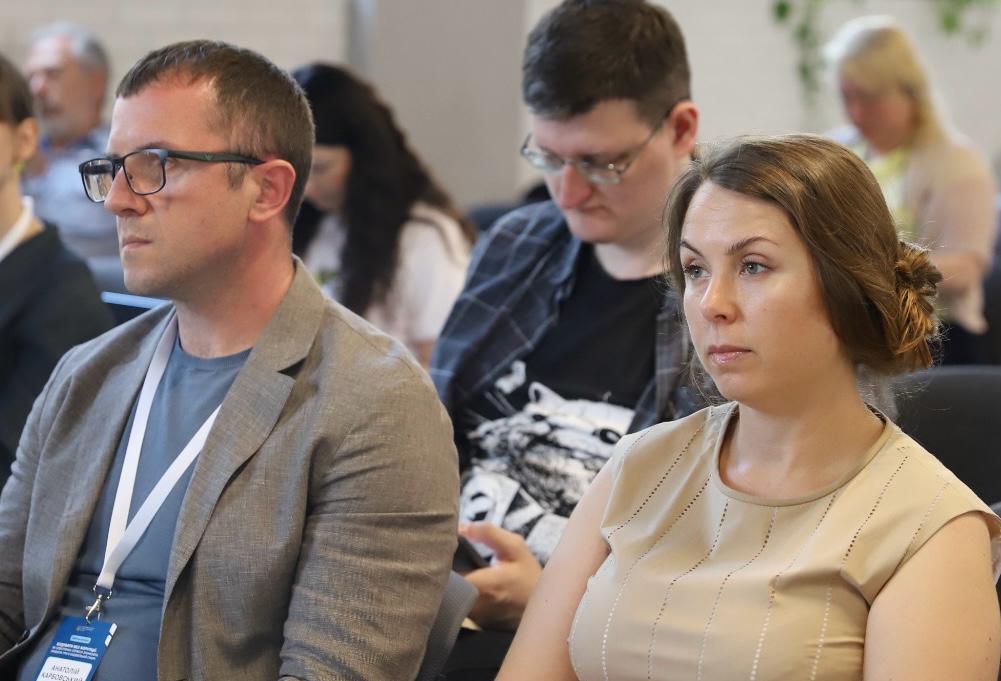Without transparency, control, and guarantees of integrity in the field of reconstruction, Ukraine risks losing not only funds but also the chance for a qualitative transformation of the country. This was discussed at the public debate ‘Building without corruption: how electronic services are changing the rules of the game in the construction sector.’
Serhii Hupiak, Deputy Head of the National Agency on Corruption Prevention (NAСP), emphasised that the Agency has significant tools to prevent corruption in the recovery process. In particular, it conducts strategic analysis in this area and has already identified eight of the most common corruption risks during reconstruction and the top ten risks in a pilot project to rebuild war-affected settlements.
‘Among the challenges are the lack of a unified methodology for selecting settlements, projects and contractors, non-transparent cost criteria, insufficient publicity of expenditures and the need for clear standardisation of the terms “reconstruction” and “rebuilding”,’ he explained.

To minimise these risks, NACP has developed comprehensive recommendations for public authorities, the implementation of which should enhance transparency and ensure preventive anti-corruption measures. At the same time, the Agency calls for the adoption of a comprehensive recovery law that will standardise procedures, make data entry into digital systems mandatory, and remove legal loopholes that open the door to abuse.
Serhii Hupiak paid particular attention to the importance of integrated digital solutions. In his opinion, it is necessary to introduce an interactive online platform in an open data format that will allow real-time tracking of reconstruction funds, control of all processes and public involvement. The DREAM platform, which is currently operating in test mode and partially meets these needs, is not yet mandatory.
"More than 1,000 communities are already actively using DREAM, but the problem of untimely data entry remains. At the same time, only through the prompt entry of information on all processes related to a specific object can the public and law enforcement agencies respond quickly to certain violations,’ emphasised Serhii Hupiak, emphasising that any effective digital solutions in this area require clear legislative support.
Valeria Koval, Deputy Director of the Directorate for Electronic Services Development at the Ministry of Digital Transformation, spoke about the positive economic impact of digital services that have already been introduced and regulated by law. She cited the example of the ‘eRestoration’ programme, which has had an economic impact of UAH 641 million since its launch and could potentially account for 2.1% of GDP by 2035. According to her, 849,000 reports of damaged property have been submitted through the service, UAH 9 billion has been paid out for repairs, 18,600 certificates for new housing have been issued for a total amount of UAH 27.7 billion, and 933 applications for construction worth over UAH 2.3 billion have been submitted.
‘Providing services online saves UAH 10,600 on each service, which is 93% of its cost,’ Valeria Koval noted.
Participants in the discussion also drew attention to the positive experience of communities that are already implementing anti-corruption solutions in practice. One example is the Makariv community in the Kyiv region, where a geoportal with open data on projects has been created and a comprehensive recovery programme integrated with the DREAM platform has been developed. According to Anatoliy Karbovskyi, deputy head of the settlement, this approach allows for effective resource management, reconstruction planning, and transparency at every stage, from project documentation to final completion of work.
The event was attended by representatives of the NACP, the government, local authorities, the public and the media. The discussion focused on the anti-corruption role and economic impact of electronic services, the need for a systematic legislative approach and opportunities for real public control in construction.












